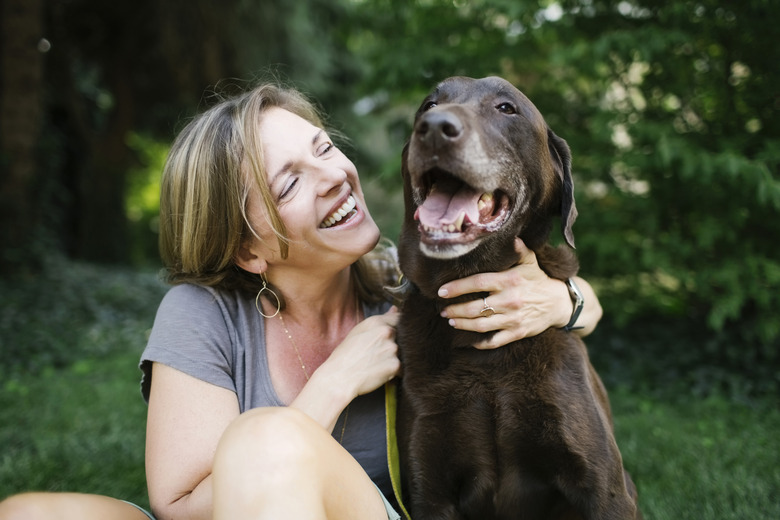Why Does My Dog Duck His Head When Petted?
Look on the internet for pictures of people petting dogs and a good number of your results will include people stroking the pup's head. This makes sense; the head is the easiest spot on a dog's body for a human to pet. But when you reach out to pet a dog on its head in real life, you are likely to find that many dogs duck or flinch when people try to pet their head. While many people automatically assume this is because the dog they are trying to pet has been abused, plenty of dogs that have never been abused still duck when people pet their heads, and there are many reasons for this.
Dogs don't like head touching
Dogs don't like head touching
The most common reason a dog will duck when someone tries to pet his head is simply that he doesn't like having his head touched. Just because it's the area humans tend to reach for most often doesn't mean it's something a dog is prone to love. As Pet Active points out, you probably don't like it when people try to pat you on the head, even lovingly, so why should your dog?
Rather than trying to pet your dog (or another person's pooch) on the head, you might try just petting his back or side instead. Most dogs like to have these areas touched. Few dogs like to have their tails, face, legs, ears, paws, or head touched, so do the dog a favor and avoid petting these areas unless he tries to get you to scratch them.
He doesn't like petting
He doesn't like petting
On top of not liking their heads scratched, some dogs simply don't like to be pet, or at least don't feel like being pet all the time. Most humans love hugs, some people never like hugs, and there are certainly some situations where people who normally like hugs don't want to be hugged — dogs feel the same way about getting pet.
Eileen and Dogs say you can tell a dog likes to be pet if she initiates the petting by moving into your space. She also may put her body or head under your hand or pull your hand toward her with her paw. When a dog wants to be pet, the muscles in her face will be relaxed, her eyes will get droopy, or she may flop her body down like a rag doll — or she may flop onto you.
On the other hand, it's a good sign the dog doesn't like petting if she ducks her head away when you reach for her, moves away, or looks away while you pet her. A dog not interested in being pet may also try to leave the area, yawn while getting pet, scratch herself as you pet her, lick her lips nervously, and show the white of her eyes. Any warning growls or snapping indicate the dog does not welcome petting.
You're not petting him right
You're not petting him right
Even if a dog actively wants to be pet and normally loves getting his head touched, he still might duck if the person petting him is petting him incorrectly. Vet Street says that most dogs don't like to be pat, yet many people insist on patting dogs on the head, and many young children cannot actually pet dogs, but just pat them. Similarly, children often slap dogs, which is something almost every dog dislikes and it can cause fear or aggression in the animal.
Studies have shown that dogs almost universally dislike hugging too as this can hinder a dog's ability to move away and make him feel cornered. If a dog ducks when you pet his head while hugging him, it could be that he doesn't like the hugging.
Some people also pet too hard or too quickly. A good petting should be slow and relaxed, calming both the dog and the person stroking him. If a dog expects to be pet too aggressively, he may duck his head instinctively before being touched.
